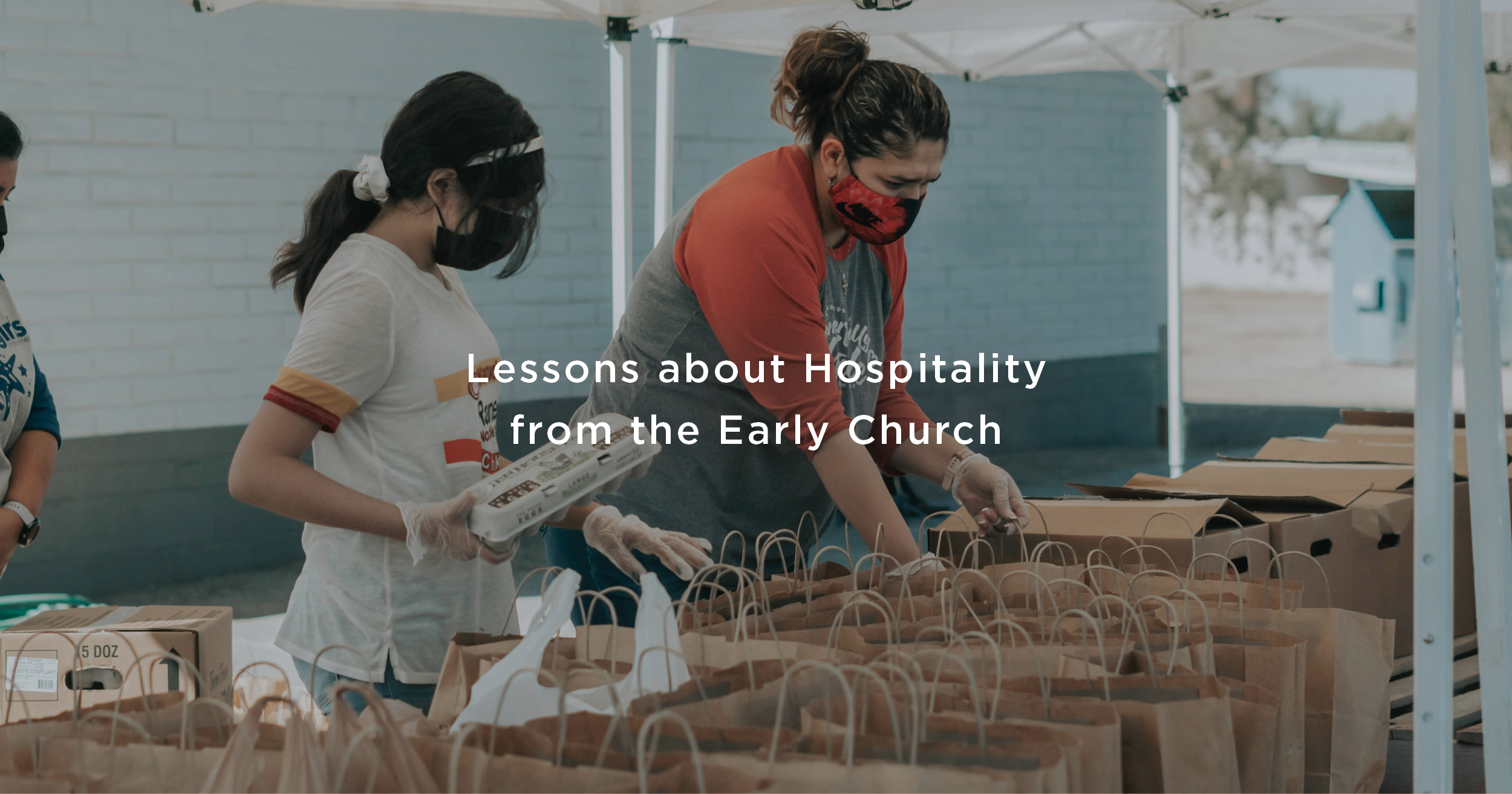
2,000 years after the church began, in the increasingly post-Christian West, it’s tempting to wonder if secular voices are right when they claim that Christian churches are passé, on the wrong side of history, or even downright damaging.
But here’s what is true: the ailments of our age are not unlike those of the first centuries. And the power of today’s church is not unlike the power of the early church.
We offer the world the healing words and power of Jesus Christ. We know who it is that made us and died to save us. We are a porch light in a dark night.
Like the first Christians, we offer open arms, warmth, welcome, Christ’s message of hope, and bright light in a dark time.
Sociologist Rodney Stark offers compelling stories and data on the radical welcome of the early church in The Rise of Christianity:
To cities filled with the homeless and impoverished, Christianity offered charity as well as hope. To cities filled with newcomers and strangers, Christianity offered an immediate basis for attachments. To cities filled with orphans and widows, Christianity provided a new and expanded sense of family. To cities torn by violent ethnic strife, Christianity offered a new basis for social solidarity. And to cities faced with epidemics, fires, and earthquakes, Christianity offered effective nursing services.
The early church was a city on a hill (Matthew 5:14)—a light, a beacon, a welcome to all who needed comfort and care. Christian, if we are willing, this can be said of us too.
Our lives and homes can be obvious beacons of safety in dangerous places. Compelled by the Spirit, we too can stand ready to offer gospel hope and healing to all who are hurting, whatever their background.
We offer the world the healing words and power of Jesus Christ. We know who it is that made us and died to save us. We are a porch light in a dark night.
We do well to ask ourselves: Is my church known for sacrificing itself for the good of others, for going toward the hurting and the lost, and for displaying supernatural unity in the midst of great diversity? Are we known more for our attractive facades, or for the sacrificial love and care we provide on the inside?
And on an individual level: Who are the newcomers I am more likely to move towards on a Sunday—those who are just like me or those with whom I seemingly have little in common? Do I make space in my life, and in my schedule, for those whose lives are messy or awkward or just very different from my own? Am I more interested in cultivating comfortable friendships or in enjoying the richness that comes from embracing relationships with people from all walks of life?
Our earliest ancestors in the faith show us what a Christ-honoring welcome looks like. The believers in Acts 2 were an exceedingly diverse bunch. We marvel at how deeply committed they were to one another—breaking bread, growing in the apostles’ teaching, and sharing everything with one another as anyone had need (Acts 2:42-47)—but I think we often overlook that this deep intimacy was amid great diversity.
This description of the early church follows the day of Pentecost, when through the Holy Spirit, the apostles spoke to a diverse multitude of people in their own tongues. The Bible says that Parthians, Medes, Elamites, residents of Mesopotamia, Judea, Cappadocia, Pontus and Asia, Phrygia and Pamphylia, Egypt and the parts of Libya near Cyrene, visitors from Rome, Cretans and Arabs all exclaimed, “We hear ... the wonders of God in our own tongues!” (Acts 2:9-11).
Our earliest ancestors in the faith show us what a Christ-honoring welcome looks like.
Are we known today for this same depth of unity amid diversity? Our context is not unlike that of the first few centuries.
As then, we bear witness to great violence, fear, division, and despair in our communities. As then, the biblical worldview is mocked and rejected as irrelevant and foolish.
As then, men and women and boys and girls are harmed at the hands of those who follow secular and pagan practices.
As then, there is great disparity and injustice between ethnicities, classes, and the sexes.
And as then, Jesus says, “I am the light of the world. Whoever follows me will never walk in darkness, but will have the light of life” (John 8:12).
May you and I shine brightly. May we be a city on a hill. May we “let [our] light shine before others, that they may see [our] good deeds and glorify [our] Father in heaven” (Matthew 5:16). Do it again Lord, we pray.
This article is a short extract from Welcome by Jen Oshman. What does being welcoming look like in the church? How can we learn from the church throughout history how to extend the welcome of Christ? Read the book to learn more, and use the free small group kit to dig deeper into this topic with your church.